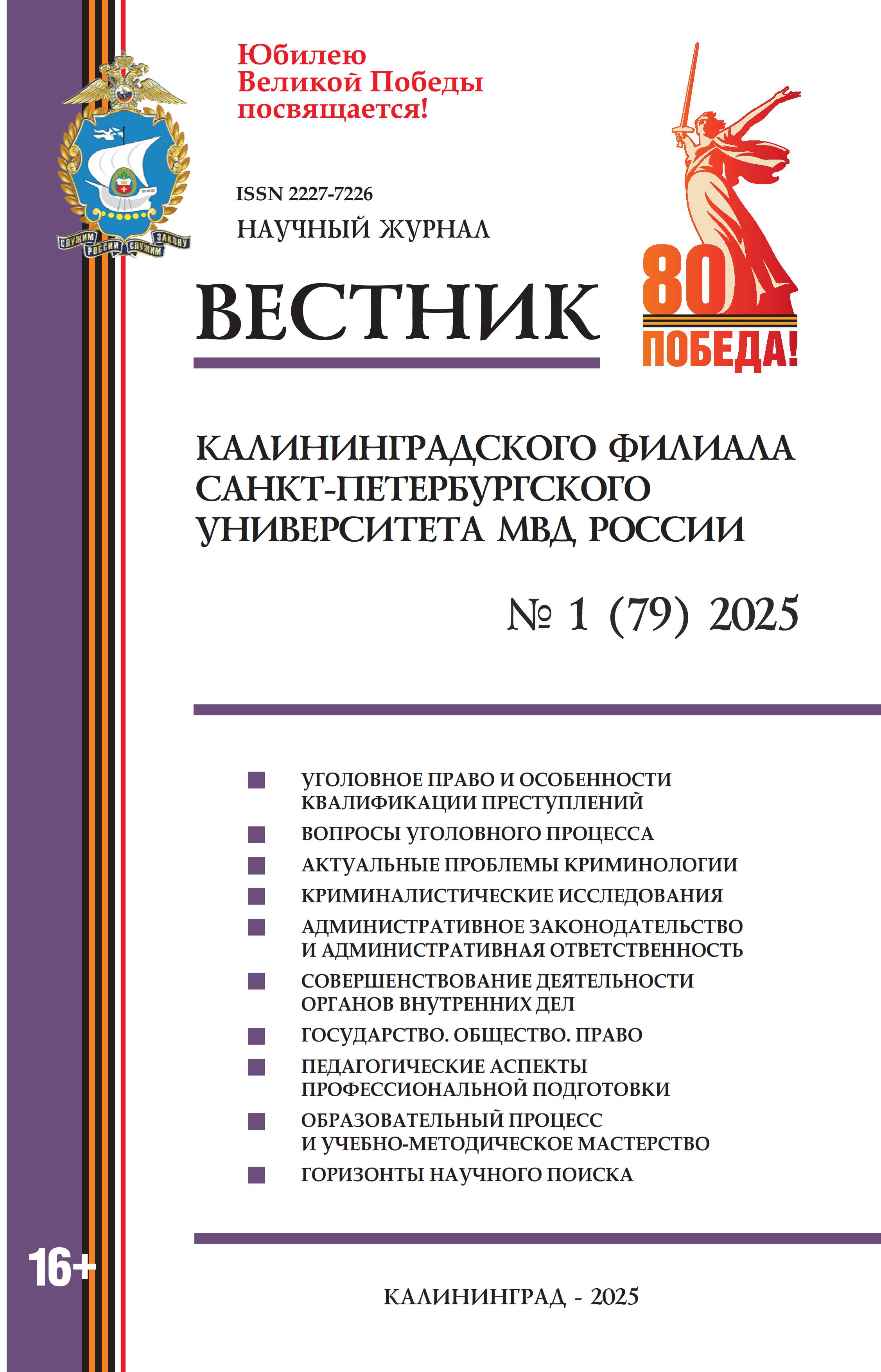Krasnoslobodsk, Volgograd, Russian Federation
Introduction. Systemic transformations in government structures associated with digitalization and the development of information and telecommunication technologies significantly affect the transformation of legal relations, as well as the interaction between government institutions and representatives of civil society. This circumstance has a specific impact on the security mechanism that helps establish the proper level of legality and law and order. In the course of the study conducted by the author of the article, the concepts of public control and public opinion, which are tools in the mechanism for ensuring legality in the activities of internal affairs agencies, were analyzed. The formation and development of institutions of public control and public opinion is considered, taking into account modern transformations in the field of information and telecommunication technologies. The importance of public control and public opinion for compliance with the law and human rights by employees of the internal affairs agencies is assessed. The influence of digitalization processes, the development of artificial intelligence and information and communication resources on public opinion about the activities of the internal affairs agencies and the level of trust in them is analyzed. Methods. The study used the general scientific dialectical method of cognition, system-structural, comparative-legal, instrumental, and formal-legal methods. At the same time, the results of a sociological study of public opinion on the activities of internal affairs agencies and the level of trust in them were used. Results. A conclusion was made about the need to update the process of studying public opinion on the activities of internal affairs agencies and organizing public control over it. The study of public opinion and public control are presented as phenomena of mutually beneficial interaction between civil society and the state in order to achieve the proper level of legality. It was proposed to adjust the criteria for assessing internal affairs agencies taking into account modern realities. The need to use information and telecommunication technologies in studying public opinion on the activities of internal affairs bodies was emphasized.
Legality, public control, public opinion, internal affairs agencies, information and communication resources, digitalization, artificial intelligence.







